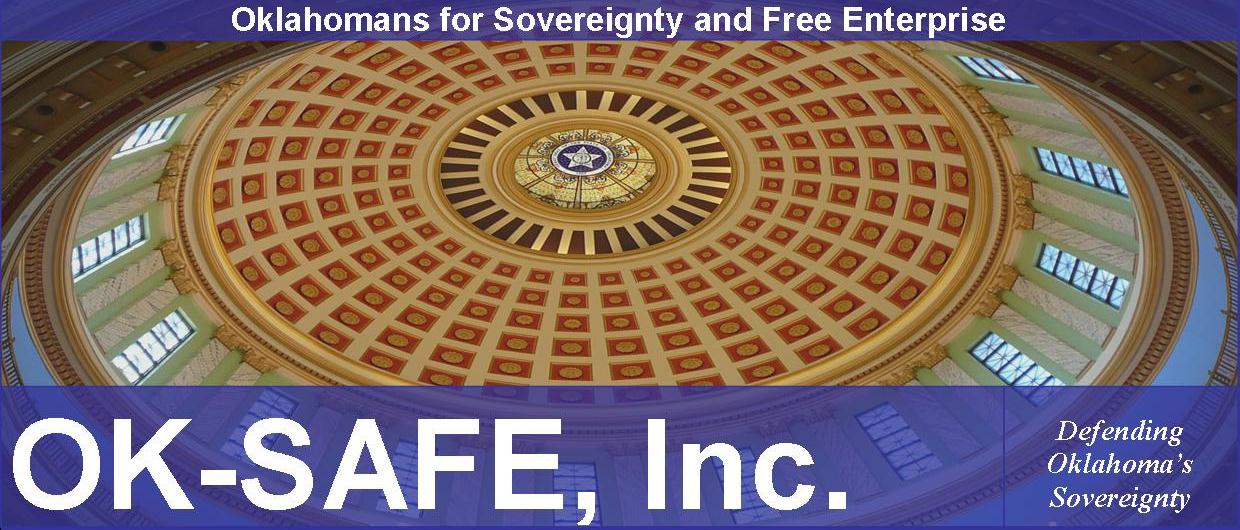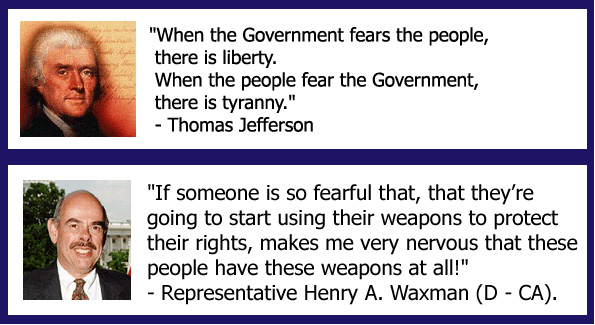![]()

The Federal government is a creation of the several States and the States are not an agent of the Federal government.
The Federal Convention convened in the State House (Independence Hall) in Philadelphia on May 14, 1787, to revise the Articles of Confederation. Because the delegations from only two states were at first present, the members adjourned from day to day until a quorum of seven states was obtained on May 25. Through discussion and debate it became clear by mid-June that, rather than amend the existing Articles, the Convention would draft an entirely new frame of government. All through the summer, in closed sessions, the delegates debated, and redrafted the articles of the new Constitution. Among the chief points at issue were how much power to allow the central government, how many representatives in Congress to allow each state, and how these representatives should be elected--directly by the people or by the state legislators. The work of many minds, the Constitution stands as a model of cooperative statesmanship and the art of compromise.
Article. I. -Section. 8. (Federal rights (powers) conveyed to the Federal Government by the ratifying States)
The Congress shall have Power To lay and collect Taxes, Duties, Imposts and Excises, to pay the Debts and provide for the common Defence and general Welfare of the United States; but all Duties, Imposts and Excises shall be uniform throughout the United States;
To borrow Money on the credit of the United States;
To regulate Commerce with foreign Nations, and among the several States, and with the Indian Tribes;
To establish an uniform Rule of Naturalization, and uniform Laws on the subject of Bankruptcies throughout the United States;
To coin Money, regulate the Value thereof, and of foreign Coin, and fix the Standard of Weights and Measures;
To provide for the Punishment of counterfeiting the Securities and current Coin of the United States;
To establish Post Offices and post Roads;
To promote the Progress of Science and useful Arts, by securing for limited Times to Authors and Inventors the exclusive Right to their respective Writings and Discoveries;
To constitute Tribunals inferior to the supreme Court;
To define and punish Piracies and Felonies committed on the high Seas, and Offences against the Law of Nations;
To declare War, grant Letters of Marque and Reprisal, and make Rules concerning Captures on Land and Water;
To raise and support Armies, but no Appropriation of Money to that Use shall be for a longer Term than two Years;
To provide and maintain a Navy;
To make Rules for the Government and Regulation of the land and naval Forces;
To provide for calling forth the Militia to execute the Laws of the Union, suppress Insurrections and repel Invasions;
To provide for organizing, arming, and disciplining, the Militia, and for governing such Part of them as may be employed in the Service of the United States, reserving to the States respectively, the Appointment of the Officers, and the Authority of training the Militia according to the discipline prescribed by Congress;
To exercise exclusive Legislation in all Cases whatsoever, over such District (not exceeding ten Miles square) as may, by Cession of particular States, and the Acceptance of Congress, become the Seat of the Government of the United States, and to exercise like Authority over all Places purchased by the Consent of the Legislature of the State in which the Same shall be, for the Erection of Forts, Magazines, Arsenals, dock-Yards, and other needful Buildings;--And
To make all Laws which shall be necessary and proper for carrying into Execution the foregoing Powers, and all other Powers vested by this Constitution in the Government of the United States, or in any Department or Officer thereof.
US Constitution - Amendment IX
The enumeration in the Constitution, of certain rights, shall not be construed to deny or disparage others retained by the people.
US Constitution - Amendment X
The powers not delegated to the United States by the Constitution, nor prohibited by it to the States, are reserved to the States respectively, or to the people.
Article III. - Section. 2.
The judicial Power shall extend to all Cases, in Law and Equity, arising under this Constitution, the Laws of the United States, and Treaties made, or which shall be made, under their Authority;--to all Cases affecting Ambassadors, other public Ministers and Consuls;--to all Cases of admiralty and maritime Jurisdiction;--to Controversies to which the United States shall be a Party;--to Controversies between two or more States;-- between a State and Citizens of another State,--between Citizens of different States,--between Citizens of the same State claiming Lands under Grants of different States, and between a State, or the Citizens thereof, and foreign States, Citizens or Subjects.
In all Cases affecting Ambassadors, other public Ministers and Consuls, and those in which a State shall be Party, the supreme Court shall have original Jurisdiction. In all the other Cases before mentioned, the supreme Court shall have appellate Jurisdiction, both as to Law and Fact, with such Exceptions, and under such Regulations as the Congress shall make.
The Trial of all Crimes, except in Cases of Impeachment, shall be by Jury; and such Trial shall be held in the State where the said Crimes shall have been committed; but when not committed within any State, the Trial shall be at such Place or Places as the Congress may by Law have directed.
US Constitution Amendment XI - Passed by Congress March 4, 1794. Ratified February 7, 1795.
Note: Article III, section 2, of the Constitution was modified by amendment 11.
|
STATES SUE OVER
OBAMACARE CLAIM STATE SOVEREIGNTY |
| March 23, 2010 |
In The News
|
![]() States Rights Obamacare Lawsuit
States Rights Obamacare Lawsuit
NATURE OF THE ACTION
1. On
2. The Act represents an unprecedented encroachment on the liberty of individuals living in the Plaintiffs’ respective states, by mandating that all citizens and legal residents of the
penalty. The Constitution nowhere authorizes the
|
SUPREME COURT STATE SOVEREIGNTY
|
| February 20, 2010 |
In The News
|
(f ) Finally, and most conclusively in these cases, the Court’s jurisprudence makes clear that the Federal Government may not compel the States to enact or administer a federal regulatory program. See, e. g., New York, supra, at 188.
What we have said makes it clear enough that the central obligation imposed upon CLEOs by the interim provisions of the Brady Act—the obligation to “make a reasonable effort to ascertain within 5 business days whether receipt or possession [of a handgun] would be in violation of the law, including research in whatever State and local recordkeeping systems are available and in a national system designated by the Attorney General,” 18 U. S. C. § 922(s)(2)—is unconstitutional. Extinguished with it, of course, is the duty implicit in the background-check requirement that the CLEO accept notice of the contents of, and a copy of, the completed Brady Form, which the firearms dealer is required to provide to him, §§ 922(s)(1)(A)(i)(III) and (IV). – Justice Scalia
That Amendment provides:
|
OCPA FREEDOM &
STATE SOVEREIGNTY |
| February 13, 2010 |
In The News
|
In the end, Keating encouraged legislators to remember that “the public sector consumed wealth while the private sector creates wealth.” He called for a careful review of “what government does, and whether those things can be done better in the private sector.” He argued it is time to enhance , not erode, the role of states as laboratories for experimentation in democratic decision-making, explicitly encouraging a fight or two over the meaning of the Tenth Amendment and its protections for state governments. “we may need to litigate to defend the state of Oklahoma,” Keating said – Former Oklahoma Governor Frank Keating - November 2009 Speech to State Chamber members
|
MARBURY V. MADISON
STATE SOVEREIGNTY |
| September 1, 2009 |
In The News
|
“The arguments against the power of the states to arrest federal tyranny are as predictable as the sun coming up in the morning, and they are as philosophical in nature as the Declaration of Independence. One of the most commonly used arguments against such a State power is the United States Supreme Court (US S CT) dicta opinion in Marbury v. Madison in 1803, written by Chief Justice John Marshall. Before getting into the misunderstandings and misapplications of that infamous decision, we must first recognize the source and character of Marshall's opinion. As Marshall himself admitted that the US is to be a country of "laws, not men," we must establish that Marshall's opinion does not equate to the "supreme law of the land" which the states and individuals are bound to obey. If our submission only requires that the US S CT speak, then we do not live as freemen, but as slaves.”
|
THE CONSTITUTION &
AMERICAN SOVEREIGNTY |
| August 24, 2009 |
In The News
|
“Would we be far wrong,” President Lincoln asked in a special message to Congress in 1861, “if we defined [sovereignty] as a political community without a political superior?” Maybe that’s not exhaustive, but it comes on good authority. And notice that for Lincoln, sovereignty is a political or legal concept. It’s not about power. Lincoln didn’t say that the sovereign is the one with the most troops. He was making a point about rightful authority.- Jeremy Rabkin; George Mason University

|
35 STATES ASSERT
10TH AMENDMENT |
| May 13, 2009 |
In The News
|
Key also addresses REAL ID.
To learn more about 10th Amendment sovereignty and to stay up to date on the states, Please visit http://www.tenthamendmentcenter.com/
|
|
||||||||||||||||||||||||||||||||||||||||||||||||||||||||||||||||||||
|
|
|
OKLAHOMA HJR1004
TO RESCIND CON-CON |
| May 12, 2009 |
In The News
|
|
Thank you! Oklahoma HJR 1004 rescinding Oklahoma's calls for a Federal Constitutional Convention was signed by Governor Henry May 12, 2009. |
|
TEXAS ASSERTS
10TH AMENDMENT |
| April 10, 2009 |
In The News
|
|
RANDY BRIGHT
ARTICLE |
| March 1, 2009 |
In The News
|
“No principle was emphasized more vigorously during the Constitutional Convention than the necessity of limiting the authority of the federal government. Not only was this to be done by carefully defining the powers delegated to the government, but the Founders were determined to bind down its administrators with legal chains codified in the Constitution.”
The Founders were well aware, having lived under a tyrannical government with centralized power, that it would be very easy for the federal government to dominate the states. - Randy Bright; Tulsan Beacon 02/26/2009
|
WND - STATES
TO ASSERT RIGHTS |
| February 5, 2009 |
In The News
|
As the Obama administration attempts to push through Congress a nearly $1 trillion deficit spending plan that is weighted heavily toward advancing typically Democratic-supported social welfare programs, a rebellion against the growing dominance of federal control is beginning to spread at the state level.
So far, eight states have introduced resolutions declaring state sovereignty under the Ninth and Tenth Amendment to the Constitution, including Arizona, Hawaii, Montana, Michigan, Missouri, New Hampshire, Oklahoma and Washington.
Analysts expect that in addition, another 20 states may see similar measures introduced this year, including Alaska, Alabama, Arkansas, California, Colorado, Georgia, Idaho, Indiana, Kansas, Nevada, Maine and Pennsylvania.
"What we are trying to do is to get the U.S. Congress out of the state's business," Oklahoma Republican state Sen. Randy Brogdon told WND. – Jerome Corsi; February 6, 2009
|
OKLAHOMA HJR1003
TO ASSERT RIGHTS |
| February 5, 2009 |
In The News
|
![]() HJR1003 Claiming Sovereingty under Tenth Amendment
HJR1003 Claiming Sovereingty under Tenth Amendment
THAT the State of
THAT this serve as Notice and Demand to the federal government, as our agent, to cease and desist, effective immediately, mandates that are beyond the scope of these constitutionally delegated powers.
|
NEW HAMPSHIRE HCR6
TO ASSERT RIGHTS |
| February 5, 2009 |
In The News
|
STATE OF NEW HAMPSHIRE
In the Year of Our Lord Two Thousand Nine
|
In The News
|
Please send technical comments and problems to: webmaster
Fair Use Notice: This site contains copyrighted material, the use of which may not always have been specifically authorized by the copyright owner. Such material is made available for educational purposes, and as such constitutes "fair use" of any such copyrighted material as provided for in Section 107 of the U.S. Copyright Act. In accordance with Title 17 U.S.C. Section 107 the material on this site is distributed without profit to those who have expressed a prior interest in receiving the included information for research and educational purposes.
Our Privacy Policy: The only personal information we give to any third party is the information you provide to us when using your debit or credit card to make a donation or purchase. All other information and correspondence are strictly confidential. We never sell, give away or barter mail lists or other information to any person, business, organization or corporation for any reason. We will not provide any personal information about you to any government or agency or employee of any government, foreign or domestic, except when we are under a court order to do so.
|
|
|
|
Other Resources |
|
|
Supporting Documents The Bill Of Rights: Oklahoma Constitution: The United States Constitution: The Declaration of Independence: The NAFTA Agreement: CAFTA: SAFETEA-LU Public Law 109-59: USDOT Corridors of the Future Program: Participants in USDOT Corridors of the Future Program: State of Oklahoma
(http://www.ok.gov/)
(http://www.ok.gov/governor/index.php)
Oklahoma Lieutenant Governor's Office
(http://www.ok.gov/ltgovernor/)
(http://www.sos.state.ok.us/)
(http://www.ok.gov/genthree/agency.php?let=all)
Oklahoma Office of State Finance
(http://ok.gov/OSF/index.html)
(http://www.ok.gov/okaa/)
(http://www.lsb.state.ok.us/)
(http://www.oscn.net/applications/oscn/start.asp)
(http://www.oscn.net/applications/oscn/index.asp?ftdb=STOKCN&level=1)
(http://www.oscn.net/applications/oscn/index.asp?ftdb=STOKST&level=1)
(http://www.ok.gov/~elections/)
(http://www.capitolconnect.com/oklahoma/default.aspx)
Links To Other Organizations LibertyForge:
(www.freedom21.org)
(http://www.americanpolicy.org/)
Eco-Logic Powerhouse:
Conservative News:
Judicial Watch:
The August Review:
Trans-Texas Corridor:
WorldNet Daily: (www.tfir.org)
The Conservative Caucus:
The John Birch Society :
The Minuteman Civil Defense Corps:
Coalition for a Prosperous America:
State Legislators for Legal Immigration:
(http://www.owassotaxpayer.com/) (http://www.libertyark.net/) Farm and Ranch Freedom Alliance: (http://farmandranchfreedom.org/content/) (http://www.nonais.org/) Arkansas Animal Producers: (http://thearizonasentinel.wordpress.com/) (http://www.parentalrights.org/) (http://restoretherepublic.com/)
(http://billkumpelawfirm.sharepoint.com/Pages/default.aspx)
(http://www.tulsansunitedforfairness.org)
Research Randal O'Toole – CATO Institute Senior Fellow (http://www.cato.org/people/randal-otoole) Dr. Everett Piper; President Oklahoma Wesleyan University:(http://www.crosswalk.com/blogs/epiper/archives.html)
(http://www.bastiatsociety.com/) Vicky Davis of Channeling Reality:
Joan Veon of WomensGroup.org:
Joan Veon of NewsWithViews.com:
Charlotte T. Iserbyt of AmericanDeception.com:
Charlotte T. Iserbyt of DeliberateDumbingDown.com: (http://axiomamuse.wordpress.com/)
The Centre For Research on Globalisation (Global Research) (http://www.globalresearch.ca/)
|
|
Copyright ©2007 Oklahomans for Sovereignty and Free Enterprise, Inc. All Rights Reserved

